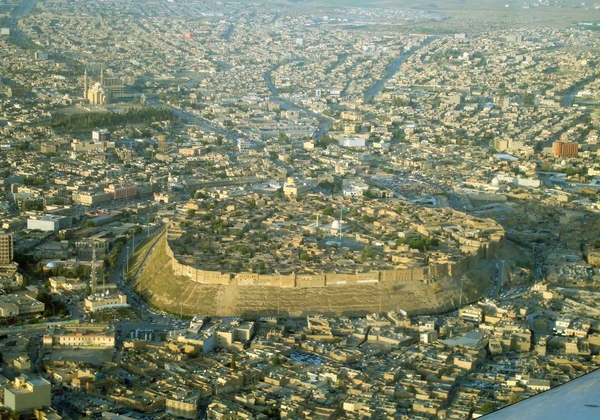Kurdistan: More Like Israel, Less Like Iraq
It is a society that rejects religious zealotry. Most Kurds are Sunni Muslim and one can hear the five-times-a-day Muslim call to prayer, but it is muted and ignored by most.
Like Israel, Kurdistan is more democratic than any of its neighbors. Like Israel, Kurdistan is surrounded by enemies that wish it did not exist. Like Israel, Kurdistan looks West. And like Israel, Kurdistan has maintained an internal equilibrium though all the world betrays it.
Iraqi Kurdistan is full of surprises. Probably, the most unexpected discovery is how normal life is in its capital city, Erbil. Despite a late summer scare by Islamic State [IS] military gains north of Mosul and the threat of suicide bomber attacks, the social discipline of Kurdistan’s citizens is admirable. There is a relaxed state of tension. It is “business as usual.”
There is also a sense of optimism, pervasive and infectious. Entrepreneurial spirit is alive and well. While there was an exodus of foreign businessmen after the initial territorial gains by the IS, foreign investors are filtering back. The Kurdistan Regional Government [KRG] has already drawn up plans for large-scale projects to improve the infrastructure. Heavy-duty construction vehicles are everywhere. The most visible project is the beltway being built around the city.
 An aerial view of Erbil, in Iraqi Kurdistan, featuring the ancient Erbil Citadel in the center. (Image source: Wikimedia Commons/Jan Kurdistani) An aerial view of Erbil, in Iraqi Kurdistan, featuring the ancient Erbil Citadel in the center. (Image source: Wikimedia Commons/Jan Kurdistani) |
Political pluralism has come to the Kurdish north as well. While the Kurdistan Democratic Party [KDP] and the Patriotic Union of Kurdistan [PUK] respectively remain the one-two political powerhouses, they now have plenty of company. No one party dominates the parliament. There is plenty of horse-trading on issues, fleeting coalitions, and new political personalities are being heard. Nevertheless, the most influential and respected leaders still come from the Barzani extended family, which run the KDP. The late Mustafa Barzani (1903-1979) is revered as the warrior-godfather of modern Kurdistan.
Kurds, for the most part, are a welcoming lot. The methodical and rapid settlement of tens of thousands of refugees from IS-controlled Iraq required bold leadership by the Barzani-led government and especially from the Catholic hierarchy of Kurdistan. This success also reflects the compassion of a self-confident people. The population of the Dohok region, for example has doubled due to the influx of refugees. There is no observable tension between the newcomers and the population of the host country. Despite the inveterate resentment of the excesses of past Arab regimes, Kurdistan is a multi-ethnic and multi-religious society. It has become even more so with the emigration from other parts of Iraq of Turkmen, Yezidis, and Christian Assyrians and Arabs. It is also a society that rejects religious zealotry. Most Kurds are Sunni Muslim and one can hear the five-times-a-day Muslim call to prayer, but it is muted and ignored by most.
Men, mostly, walk on the streets of Erbil, Dohok, and Zako, especially at night. Kurdistan is not, however, a society that represses women. There are many in parliament, and they are outspoken on the issue of violence to females in Kurdish society. At one conference in mid-November, at least half of the speakers were women prominent in Kurdistan. Women military volunteers are widely admired. The Kurdish media celebrates the Kurdish Peshmerga‘s female fighters. One woman — a veteran of the fierce battle to save the Syrian Kurdish town of Kobane (near Turkey’s border) from an IS takeover — who recently visited Erbil, was received as a national hero. Female Yezidis who have escaped after torture by IS operatives are deeply admired too.
Zako, once the center of Kurdistan’s Jewish population, still invites back descendants of those who long ago left for Zion. Zako’s isolated villages are the wild west of Kurdistan. Its stark beauty against a ring of mountain chains may become a tourist magnet both for its ancient historical attractions and recreational possibilities.
For all of the above reasons, Kurdistan reminds one of Israel. Like Israel, Kurdistan is not dominated by the Arab, nor by Islam. Like Israel, Kurdistan is more democratic than any of its neighbors. Like Israel, Kurdistan is surrounded by enemies that wish it did not exist. Like Israel, Kurdistan looks West. And like Israel, Kurdistan has maintained an internal equilibrium though all the world betrays it.
Dr. Lawrence A. Franklin served on active duty with the U.S. Army and as a Colonel in the Air Force Reserve, where he served as a Military Attaché to Israel.
